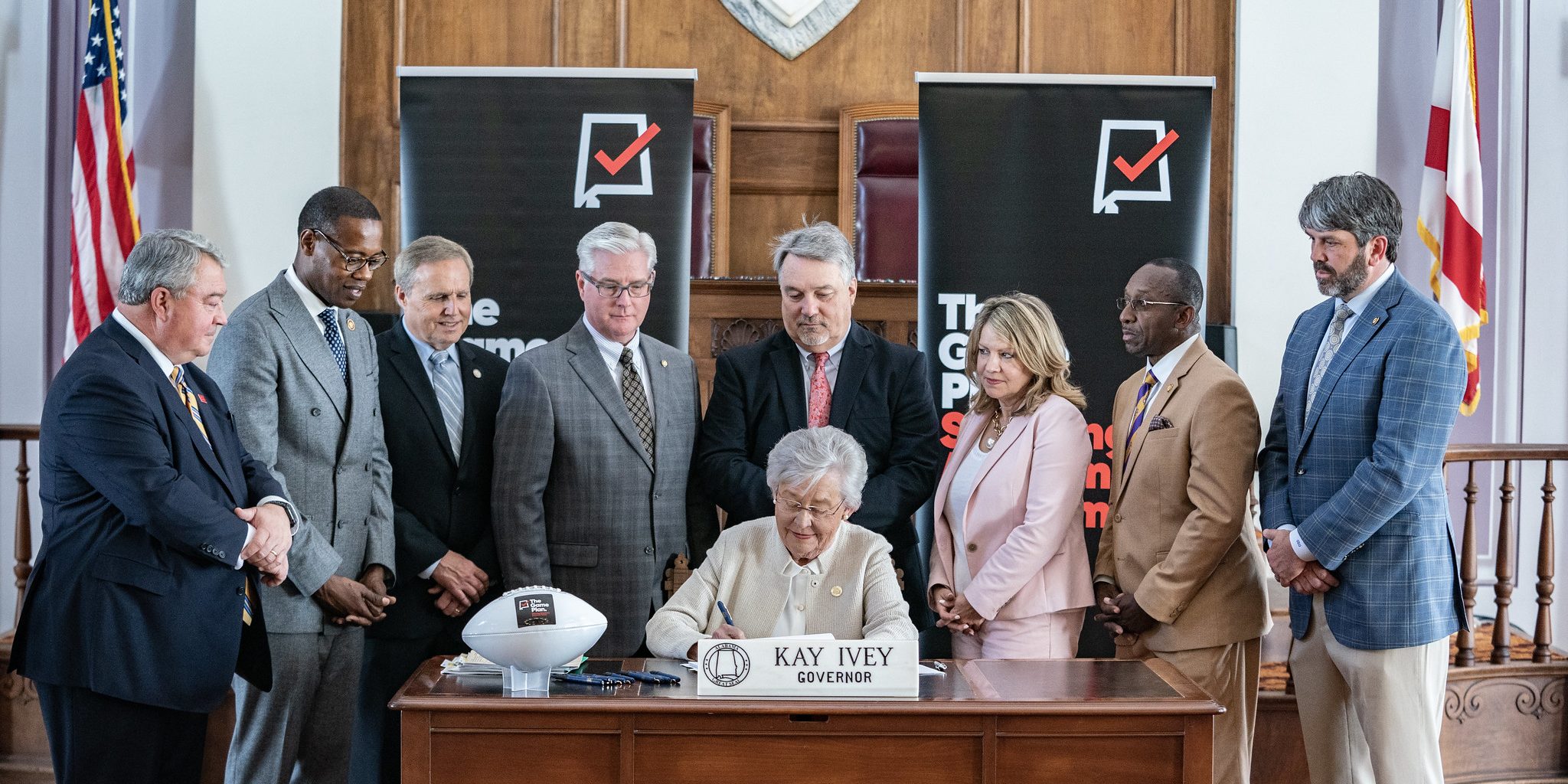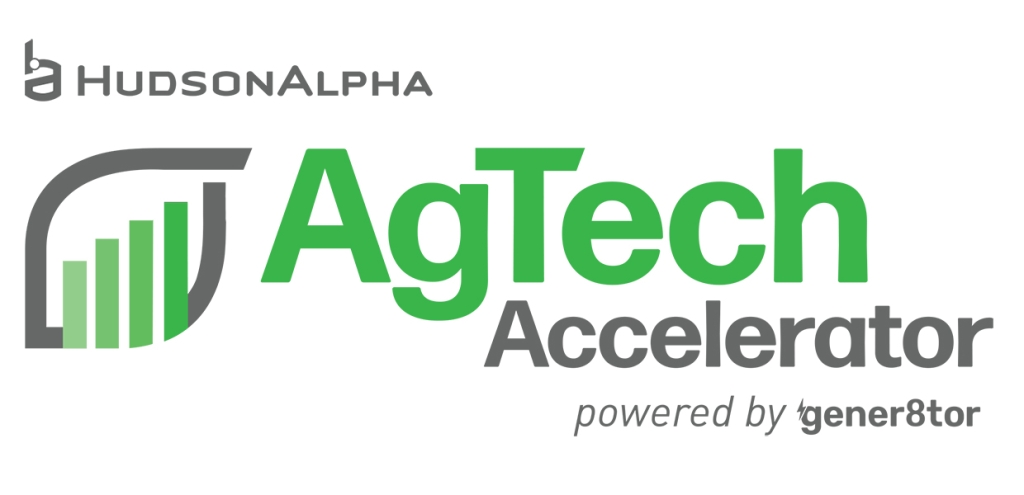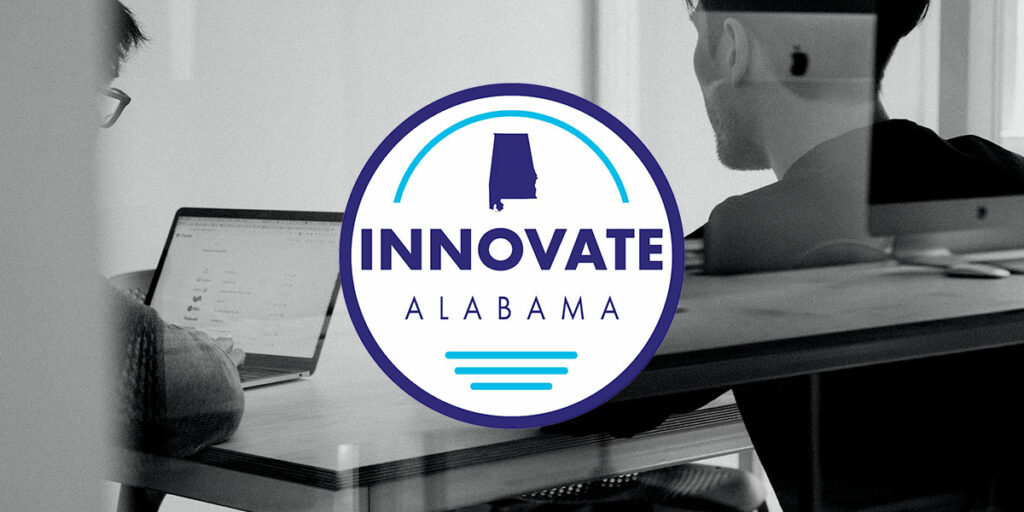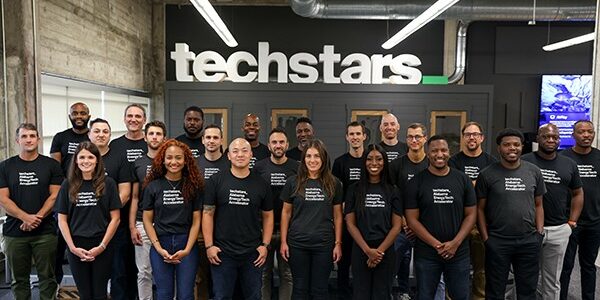Every day, Carter Wells is excited to come into work and watch some of the smartest people in Alabama solve some of the world’s biggest problems.
It’s not exactly easy to describe the work happening at HudsonAlpha Institute for Biotechnology, a nonprofit genomics institute in Huntsville. But chances are, the work HudsonAlpha is doing is already affecting your life.
“If you watch Lester Holt Monday through Friday, you will hear something related to genetics and genomics,” said Wells, the vice president for economic development at HudsonAlpha.
“He might not say ‘this is genomics,’” Wells said. “But if he talks about a new drug that’s being developed, a new therapeutic, a biomarker for breast cancer, a new treatment for Parkinson’s or anything dealing with climate change and the way things have to be grown differently — a new development in sub-Saharan Africa with a new crop, for example, that’s genomics.”
This world-changing technology is happening in Alabama, thanks in part to Innovate Alabama’s tax credit program.

Headquartered in a city best known for its deep ties to missile defense and space exploration, HudsonAlpha is one of the early innovators for Huntsville’s fast-growing tech and biotech industry.
HudsonAlpha is one of many organizations that take part in the Innovate Alabama Tax Credit program, which has garnered enthusiastic engagement from the state’s leading innovation drivers like Southern Research in Birmingham and Innovation Portal in Mobile. And, thanks to CEO Cynthia Crutchfield, the tax credit program is now a boon for sectors that have historically been left out of innovator funding.
BEAT Builds, in the historic Ensley neighborhood in Birmingham, is one such organization. Its mission is to eliminate blocks of urban blight and replace them with a dynamic active park surrounded by new commercial space, affordable housing, educational and health facilities for the community and an entrepreneurial and small business center.
“Entrepreneurs, founders, researchers and innovators have a new support system now inside of the state to help them grow their businesses,” Crutchfield said. “With the tax credit program, we’re bridging funding gaps for essential ecosystem builders and the startups they serve.”
To create a flourishing ecosystem in Alabama where tech accelerators and businesses thrive, Innovate Alabama offers these tax incentives to help entrepreneurial support organizations do what they do best: provide the tools, resources and opportunities that help founders level up their companies.
The Innovate Alabama tax credit incentivizes funding to economic development organizations (EDOs) by offsetting up to 50% of various tax types for corporations that divert those funds to EDOs, a win-win for everyone.

Innovate Alabama has awarded approximately $24 million in tax credits to economic development organizations supporting small businesses, entrepreneurs, innovators and researchers.
The benefit for the recipient is no different than receiving cash, said Miller Girvin, executive vice president of innovation and entrepreneurship at the Economic Development Partnership of Alabama (EDPA). According to Girvin, EDPA, one of the first Innovate Alabama tax credit recipients, operates the state’s largest and longest-running accelerator program, Alabama Launchpad, which facilitates three annual cycles culminating in competitive pitch competitions with non-dilutive seed prizes.
The goal of the tax credit is to incubate the next wave of entrepreneurship in the state.
By incentivizing private investment in building an ecosystem that supports innovation and entrepreneurship, the program also fosters corporate connections and relationships to small business development throughout the state. In the past 10 months alone, Innovate Alabama has deployed nearly $50 million through grants and tax credits to accelerators, economic development organizations and small businesses emerging from cutting-edge research. This is not just an investment; it’s a catalyst for smart, sustainable growth.
Organizations including Innovation Depot, a nonprofit incubator in Birmingham, and Opportunity Alabama, a statewide economic development entity focused on transforming Alabama’s communities through public and private investment, have taken part in the tax credit program, bolstering their work and deepening relationships with the state’s business sector.
Innovate Alabama’s tax credit helps national leaders in startup acceleration build a sustainable presence in Alabama, like Techstars and gener8tor, which are instrumental in attracting out-of-state founders to come and give Alabama a try. With each cohort, more and more founders choose to put down roots in Alabama. One Techstars EnergyTech Accelerator cohort even created a shared living space, B.Home, where they could collaborate and build community beyond the accelerator.
“The tax credit program is something I think we can hold up as an example of Alabama trying to grow and support startups — and particularly startups run by women and people of color in a really creative way,” said Emily Wykle, regional vice president at gener8tor, where she manages relationships with funders, clients and stakeholders.
Gener8tor is a startup accelerator that operates in cities across the U.S., including Birmingham, Huntsville and Mobile. To date, the Alabama businesses that have taken part in gener8tor’s programs have garnered more than $54 million in follow-on funding, helping fund more than 580 jobs.
“We’ve fostered incredible partnerships with accelerators across the state – from Huntsville to Birmingham to Mobile – centered on creating opportunities for founders, regardless of race, place or gender. These organizations, which include Prosper, Bronze Valley, HudsonAlpha, RCP Companies and Innovation Portal, align with gener8tor’s focus on inclusive economic growth,” Wykle said.
“Not only is it gener8tor’s mission to create opportunity for all, but it’s in Alabama’s DNA to talk about race and what we are doing around racial equity,” she said.
“We’ve had nearly 130 companies across the state that we’ve served,” said Haley Kendrick, Ph.D., gener8tor senior managing director overseeing Alabama programs and staff.
Kendrick pointed to the success of Acclinate, a platform for clinical trial recruitment for diverse populations, and Kaya, a group mental health care platform, which both received early funding from Bronze Valley and Prosper via the respective accelerators.
“Bronze Valley has a network of experts that provide services to the companies at no cost,” Kendrick said, adding that all the accelerators gener8tor works with, including HudsonAlpha, are building strong networks between customers and investors.
Offering incentives that support these organizations is a no-brainer for Innovate Alabama, whose mission is to help innovators grow roots in Alabama. Each beneficiary of the tax credit plays a significant role in attracting and retaining a specialized workforce from all over the country to move to Alabama. Organizations like HudsonAlpha, Techstars, Alabama Launchpad and gener8tor get them here – the quality of life at a low cost, access to the great outdoors and a supportive ecosystem of cheerleaders keep them here.
“People are coming to Alabama and staying in Alabama and bringing their collaborative spirit,” Wells said.
“This program sends the message that Alabama is open for business,” Crutchfield said, “and our state’s highest-ranking elected officials are invested in helping you grow roots here.”













